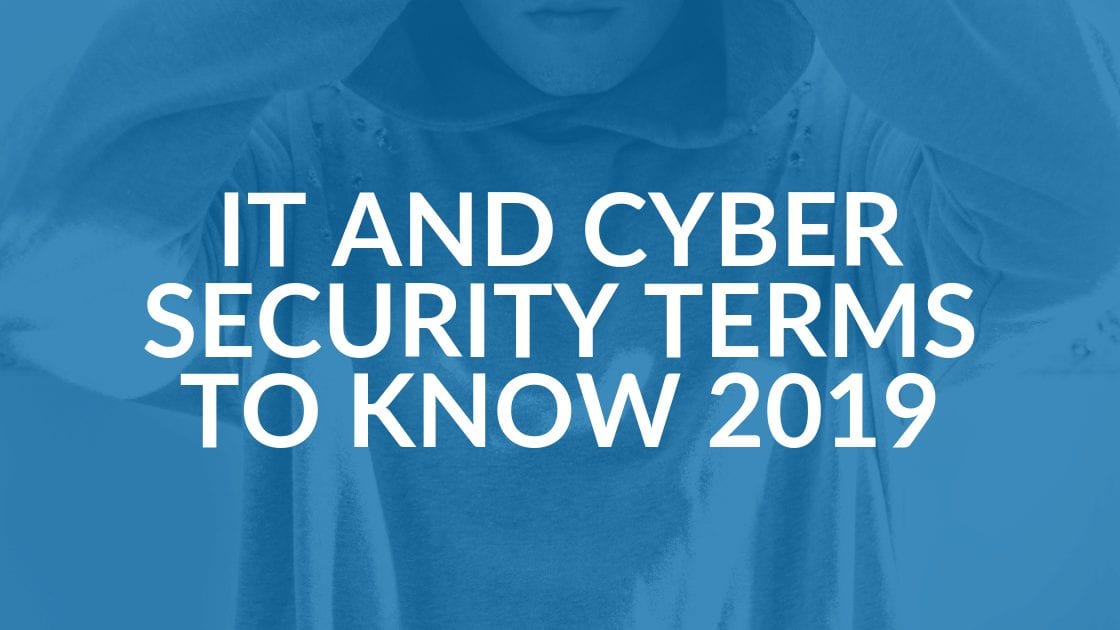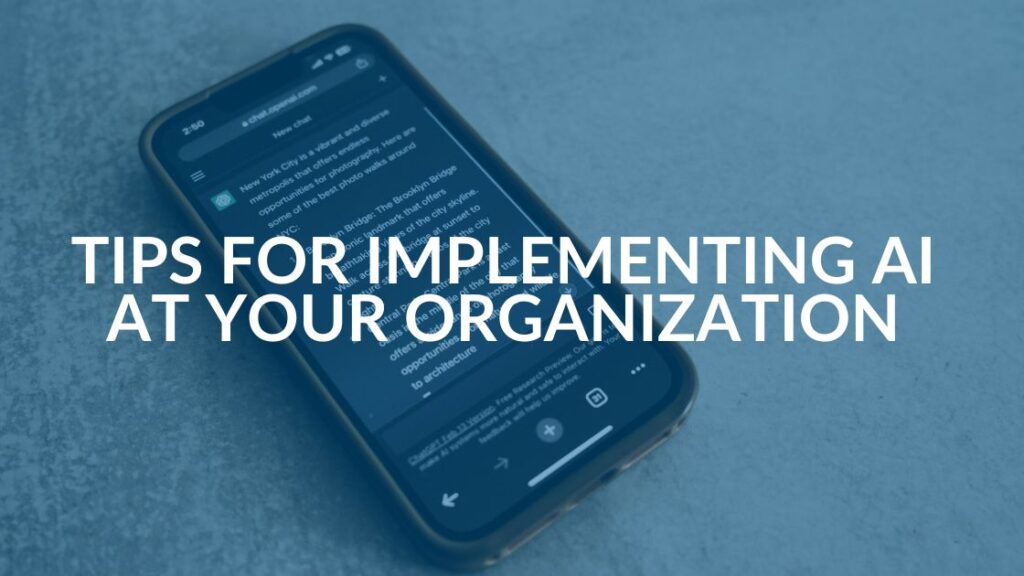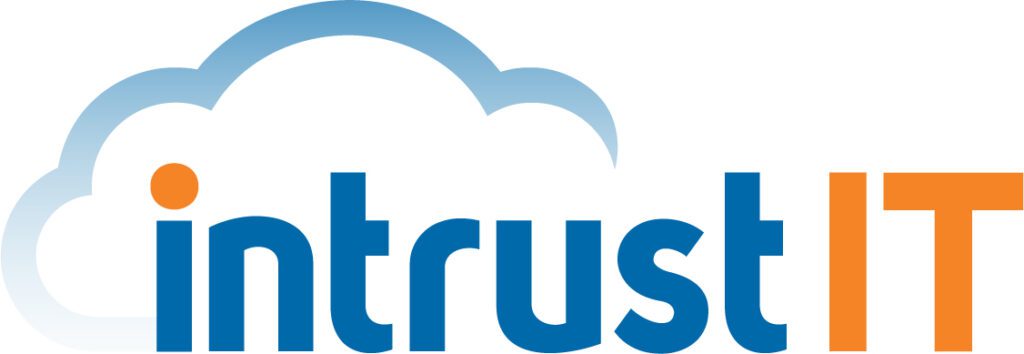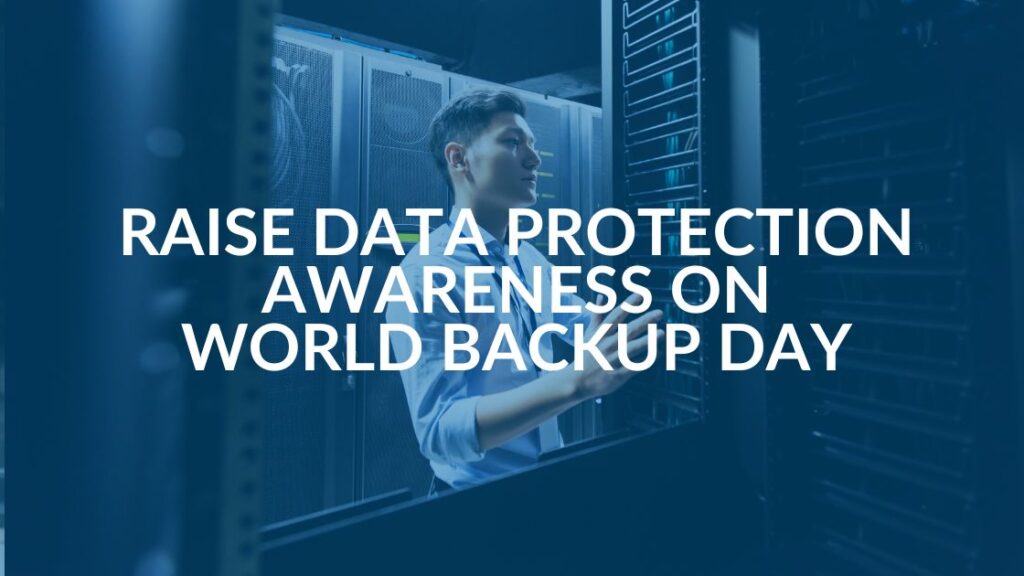IT and Cyber Security Terms Defined for 2019
June 7, 2019/

When you are dealing with IT service issues, jargon can be intimidating. Here are some basic IT and cyber security terms and concepts to help you move on and not be surprised the next time something happens.
- Malware: For a long time, the phrase “computer virus” was misappropriated as a term to define every type of cyber attack that intended to cause harm or hurt your computers and networks. A computer virus is actually a specific type of attack, or malware. A virus that is designed to replicate itself or any software created for the purpose of destroying or unfairly accessing networks and data should be referred to as malware.
- Ransomware: When it comes to cyber sercurity terms, all words ending in “ware” can be confusing. They are all just subcategories of malware. Currently, one of the most popular of these is “ransomware.” With ransomware a bad actor is using malware to encrypt your valuable data and hold it for “ransom” to be paid for its return.
- Intrusion protection system (IPS): Having an intrusion protection systems (IPS) is quickly becoming a non-negotiable. An IPS sits inside of your company’s firewall and looks for suspicious and malicious activity. It seeks to stop that activity before it can exploit or take advantage of a vulnerability.
- Social engineering: The act of tricking people into revealing sensitive or guarded information such as passwords, accounts and more. Complicated software is totally unnecessary if you can just convince potential victims that you’re a security professional who needs your password.
- Phishing: The act of creating an application or website that impersonates a trustworthy and often well-known business. Phishing sites or emails attempt to solicit confidential information. Just because you received an email that says it’s from the IRS doesn’t mean you should believe it. Always be suspicious and always verify the source of information requests.
- Antivirus: Antivirus software is often misunderstood to comprehensively secure your computers and workstations. These applications are just one piece of the cybersecurity puzzle. Antivirus software can only scan the drives on which it is installed for signs of well-known malware variants.
- Zero-day attacks: Before malware is discovered by cybersecurity experts, that is when it is most dangerous. When a vulnerability is found in a piece of software, vendors release an update to amend the security gap. However, if cyberattackers release a piece of malware that has never been seen before that exploits that gap not yet discovered, it is called a zero-day attack.
- Patch: When software developers discover a security vulnerability in their programming, they usually release a small file to update and “patch” this gap. Patches are essential to keeping your network secure. It is a good idea to check regularly for patches and install them as soon as they become available.
- Redundant data: When antivirus software and intrusion detection fail to keep your information secure, there’s only one thing that will work: quarantined off-site storage. Duplicating your data offline and storing it somewhere other than your business’s location ensures that you have a backup.
Making Sense of Cyber Security Terms
We hope this was helpful. We enjoy geeking out about cyber security. Get in touch with us today and find out just how we can help you with your IT woes.
Posted in Cyber Security, IT Support
Share this Blog

Is Your Name or Birthday a Part of Your Password?
If so, you’re a part of the 59 percent of people who don’t follow proper password hygiene. More than 70 percent of passwords are used for more than one system, meaning if cybercriminals crack one, they can access a lot more accounts.
Our free Enterprise Password Management Guide will give you the best password hygiene practices to help you secure your computer and your business.
Download the Guide
Explore the Latest Trends in IT

Microsoft 365 and Google Workspace: The Importance of Backing Up Your Cloud-Based Applications
Think your Microsoft 365 and Google Workspace data is safe just because it's in the cloud? Think again. Businesses often...

AI Guiding Principles
There’s no longer any debate about if your company should be using AI. With the rapid adoption of AI across...

Edge vs Chrome Security: Which Is the Best Browser for Your Business?
As a business owner, you shouldn’t have to lose sleep worrying if your vital business information is safeguarded against hackers,...

Unlocking Security: The Power of Password Managers and Passkeys for Business Professionals
Cyberattacks increasingly impact organizations of every type and size, and they can be devastating. For example ‘My company thrived for...



